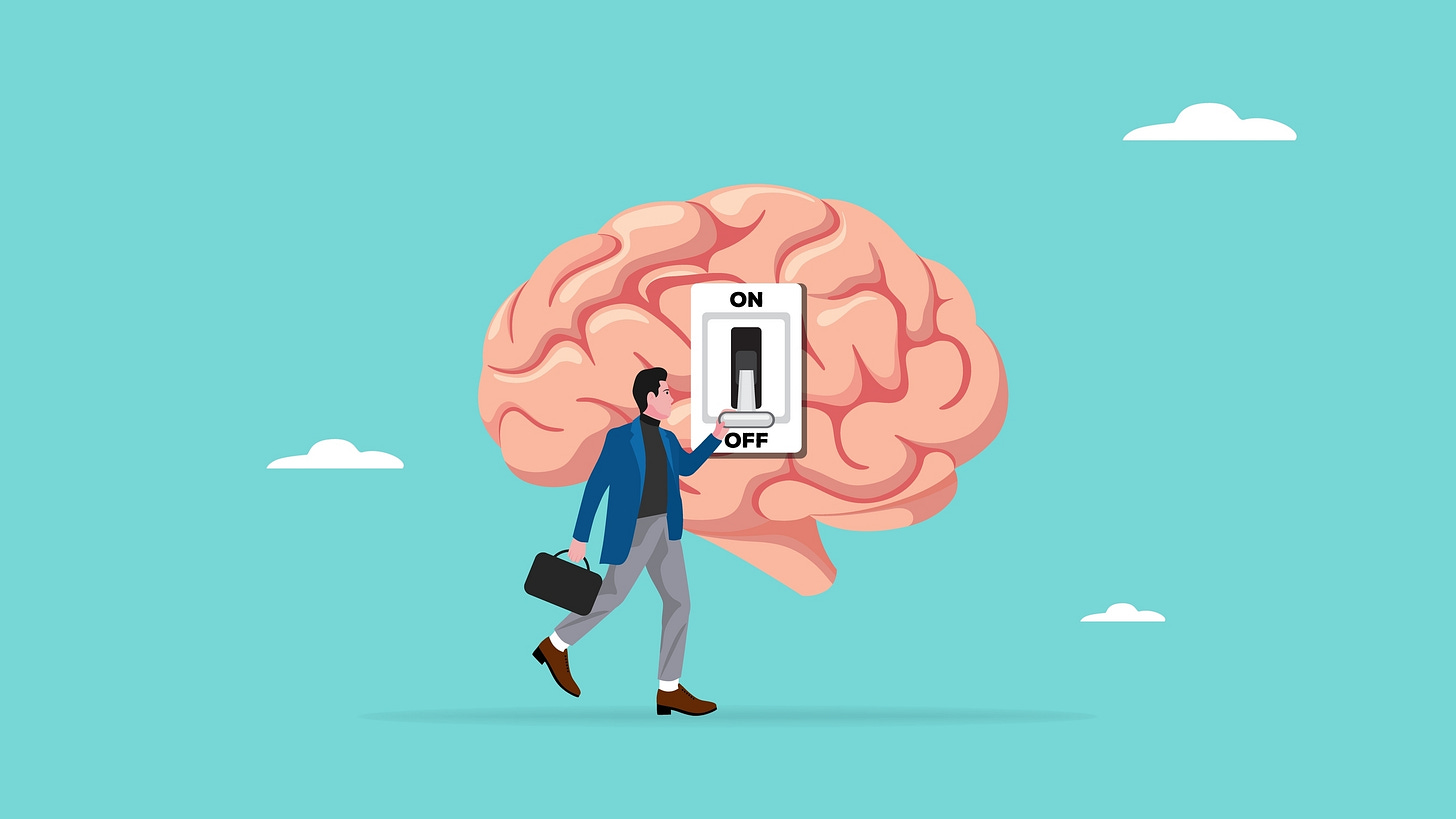Why You Need A Post Session Routine As A Poker Player To Improve Your Performance Aswell As Your General Well Being
Have you ever noticed how difficult it can be to wind down after a poker session?
You leave the table, but your mind is still active.
You're replaying hands and analysing decisions.
Thinking about what could have gone differently.
If this sounds familiar, you’re not alone. Many poker players struggle with turning off their "poker brain" after a session. This leads to restless nights, stress, and a lack of mental clarity.
Struggling to Switch Off After a Poker Session
As a dedicated poker player, you pour much mental energy into your game. But after a session ends, your mind often keeps racing.
The Zeigarnik Effect plays a significant role here. This effect is where unfinished tasks linger in our minds. This could be from unresolved thoughts like analysing a tricky hand. Your brain holds onto these thoughts, making it hard to relax and detach from the game.
This constant mental replay can disrupt your sleep and heighten stress levels. It can even affect your performance in future sessions.
You need to find a proper way to decompress and process your experiences. Otherwise, you will carry the weight of previous games into new ones. This can lead to burnout or suboptimal play.
The Hidden Costs of an Overactive Poker Mind
Ignoring the need for a post-session routine can have several negative consequences:
Restless Nights
When your mind is stuck on poker, falling asleep becomes a challenge. The Zeigarnik Effect keeps those unfinished thoughts swirling in your head. It disrupts your ability to rest and recover.
Increased Stress
Continuously thinking about poker can cause stress. This is especially true when you’re frustrated with a session’s outcome. This stress accumulates over time, impacting your mental and physical health.
Decreased Focus in Future Sessions
Carrying unresolved thoughts into your next game can cloud your judgment. You might find yourself distracted by past mistakes or lingering doubts. This is instead of approaching each session with a clear mind.
Emotional Drain
Constantly replaying hands and decisions can drain you emotionally. Without a break, your love for the game might reduce. Also, you may start feeling more frustrated or disheartened.
Implementing a Post-Session Routine
You need to protect your mental well-being and improve your poker performance. For this, it’s crucial to develop a post-session routine. This routine can help you process your thoughts and clear your mind. It also will prepare you for future games with renewed focus and energy.
Here’s how to do it:
Create a Reflection Window
Shortly after a session, take 10-15 minutes to write down key hands and decisions. You should also write down any emotions you experienced. This allows you to acknowledge and process your thoughts while they’re still fresh. Writing them down helps your brain feel a sense of closure. This reduces the lingering effects of the Zeigarnik Effect.
Develop a Decompression Ritual
Find an activity that helps you unwind. One that signals to your brain that the poker session is over. This could be a short meditation, a walk, or even a few minutes of deep breathing exercises. The goal is to shift your mind from an analytical state to a more relaxed one, allowing you to leave the game behind.
For some players, transitioning from playing to meditating or breathing is difficult. They need something in between that helps bridge the gap. This may involve listening to music, watching something on YouTube, or watching comedy.
It’s essential to find what works for you individually.
Engage in Light Physical Activity
You need something to help burn off excess energy and stress built up during your session. Physical activity, like stretching or a small workout, can help. Exercise increases endorphins. These are natural mood lifters, helping you transition from poker mode to rest mode.
Set Clear Boundaries
Establish a rule for yourself once your post-session routine is over. Poker talk needs to be off-limits until your next session or study session. This boundary helps you mentally separate your poker life from your personal life. This gives your brain a much-needed break.
Plan Your Next Steps
Instead of thinking about what you could have done differently. Use your post-session reflection time to identify areas for improvement. Create a simple plan for what you’ll focus on in your next study session. This shifts your mindset from dwelling on past mistakes to future growth.
The Power of a Post-Session Routine
A post-session routine isn’t only about improving your poker. It’s about preserving your mental health and sustaining your passion for the game.
Allow yourself to recharge before your next session. Take the time to reflect, relax, and create mental boundaries. This approach helps you sleep better and reduce stress. It also ensures that you enter each new game with a clear, focused mind ready for success.
Take control of your post-session routine today. Experience the difference it makes in your game and your life.
I hope this helps.
Catch up soon,
Alex
If you would like to find out more about 1-1 coaching, book your free consultation call with me via the link below (please select the “Free Pre-booking Consultation” option) :
For more poker content, please follow me on my social media channels:






